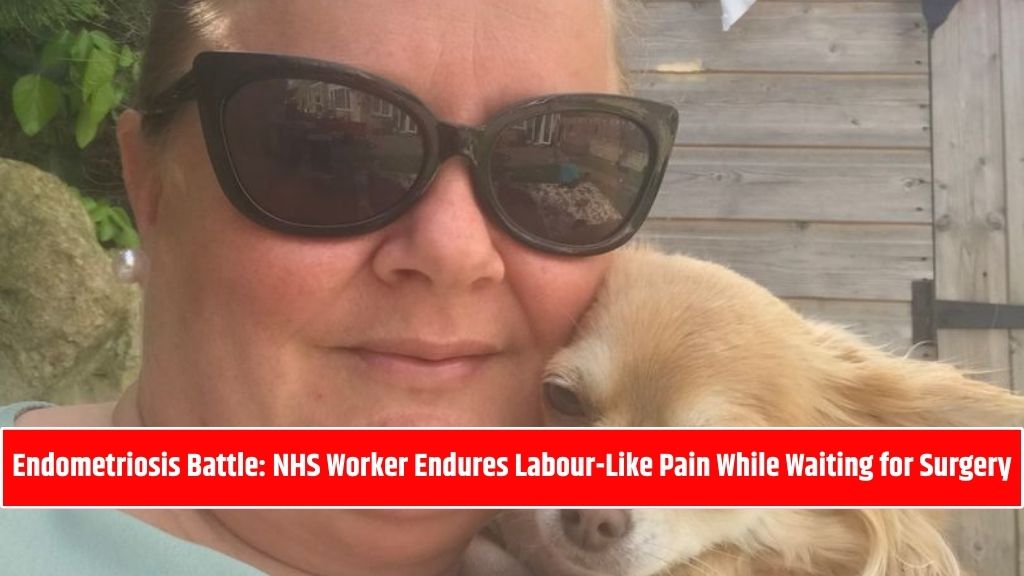For NHS worker Lisa Matthews, life has become a daily battle against excruciating pain. The 49-year-old mother of three from Bath has been waiting two-and-a-half years for a hysterectomy to treat her severe endometriosis. However, her treatment has been repeatedly delayed due to her weight, leaving her in constant discomfort that she compares to the agony of labour. Despite her efforts to lose weight naturally, complications, including arthritis and limited access to medication, have left her feeling trapped in a frustrating cycle of pain and confusion.
Understanding Endometriosis: A Debilitating Condition
Endometriosis is a condition where tissue similar to the uterus lining grows outside the womb. This can cause severe pain, heavy periods, and sometimes fertility issues. For Lisa, the pain is relentless.
“I’m not sleeping because I’m dreaming I’m in labour – the pain is like labour,” she explains. Each day is a battle to manage discomfort that even strong pain relief struggles to ease. Unfortunately, Lisa is allergic to codeine, one of the more common pain relief options, leaving her with limited choices to manage her symptoms.
The Surgery Setback: A Life-Changing Procedure Delayed
Doctors recommended a hysterectomy to provide relief, but Lisa’s first surgery had to be halted when she stopped breathing due to complications related to her weight. Since then, she has lost a stone (around 6.35 kg) but still needs to lose more weight to undergo the procedure safely.
Lisa has requested weight loss medication, specifically Ozempic, which was initially recommended to her by healthcare professionals. However, her journey to obtain the medicine has been filled with obstacles.
The Weight Loss Medication Maze
Lisa’s struggle to access weight loss medication has been a two-and-a-half-year ordeal. Initially, she was told to wait for Ozempic to be approved by regulators. Later, she was advised to wait for a different medication called Wegovy, only to be told later about yet another drug, Mounjaro.
“It feels like I’ve just gone round in a big circle,” she says, frustrated by the lack of progress. The NHS Patient Advice and Liaison Service (PALS) confirmed her legal right to treatment, but she remains empty-handed.
NHS Response: A System Under Pressure
A spokesperson from the Royal United Hospitals (RUH) in Bath expressed regret over Lisa’s situation, explaining that the hospital does not currently prescribe weight loss injections.
“The RUH offers a specialist weight management service that helps patients find sustainable weight-loss solutions,” the spokesperson said. They also mentioned that the hospital is reviewing new guidance regarding Mounjaro and exploring its potential availability for suitable patients.
The NHS has faced widespread challenges regarding the availability and supply of weight loss medications, particularly with the rising demand for drugs like Ozempic and Wegovy.
The Physical and Emotional Toll
Lisa’s health issues have severely impacted her daily life and ability to work. Although she loves her job as a medical secretary, her pain only allows her to work part-time. This also limits her financial ability to seek private treatment.
The pain often becomes so unbearable that she ends up in the emergency department at her own hospital, relying on gas and air for temporary relief.
“It’s ironic,” she says. “I work at the hospital that I end up in as a patient.”
The Weight Loss Debate: Misconceptions and Challenges
Lisa is aware of the public debate around weight loss medications like Ozempic. Critics often dismiss these drugs as an “easy way out” and advocate for diet and exercise alone. However, Lisa highlights that many people, like her, face physical conditions such as arthritis, which make traditional weight loss methods more difficult.
“It’s not always as simple as ‘just get up and exercise,'” she says. “Some of us are doing everything we can, but our bodies are working against us.”
Looking Ahead: A Long Road to Relief
Despite the setbacks, Lisa remains hopeful that she will eventually get the medication and surgery she needs. She continues to engage with NHS services and advocate for her right to treatment. Her situation also raises broader concerns about the challenges patients with chronic health conditions face when accessing new medications.
| Visit for More News and Updates | WSOA NEWS |











